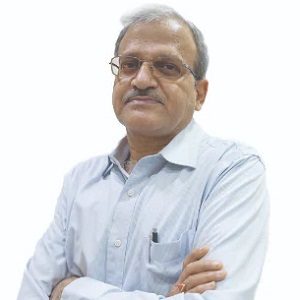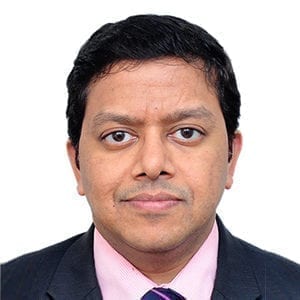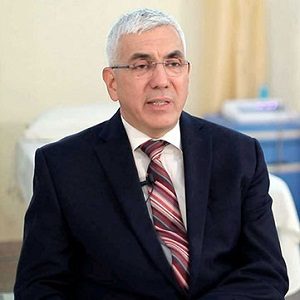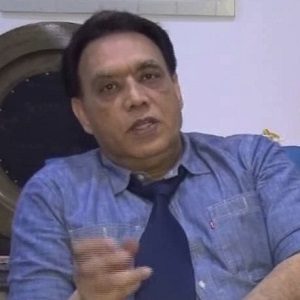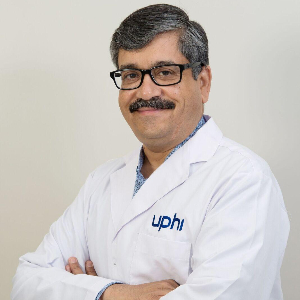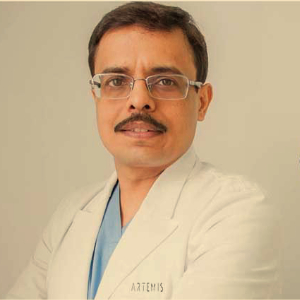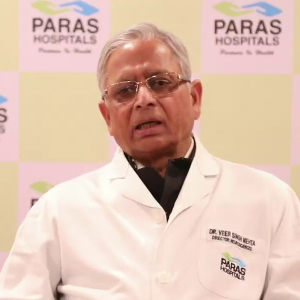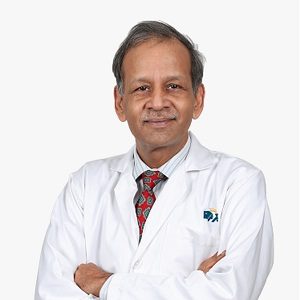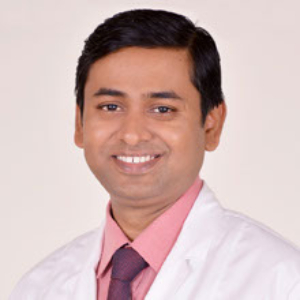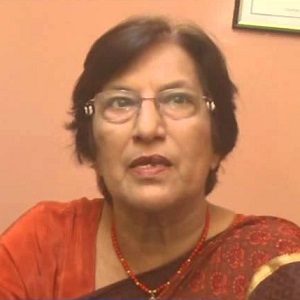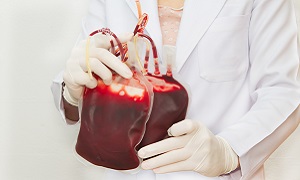Best Doctors in India for Neuroblastoma Treatment
- Pediatric Neurologist, New Delhi, India
- Over 30 years’ experience
Profile Highlights:
- Dr. Vineet Bhushan Gupta is a renowned pediatric neurologist with nearly three decades of experience in treating neurological disorders in children.
- Currently, he is practicing as a senior consultant at Indraprastha Apollo Hospital, New Delhi.
- Dr. Gupta is a certified fellow in Pediatric Neurology from London and the Pediatric Intensive Care Unit, Alder Hey Children’s Hospital of Liverpool.
- Dr. Vineet Bhushan Gupta specializes in Spinal fusion surgery. He also treats Spondylolisthesis, Epilepsy, pediatric stroke, Disc Desiccation, Spinal Stenosis, Fractured vertebrae, Herniated Disc, Disc Degeneration, Scoliosis, and developmental problems.
- Dr. Gupta has authored numerous research papers and studies that have appeared in a host of medical journals.
- Neurologist, New Delhi, India
- Over 15 years’ experience
Profile Highlights:
- Dr. Puneet Agarwal is one of the renowned neurologists in India known for his outstanding performance in the field of neuroscience.
- He is considered to be one of the first few doctors to successfully complete the Inflammatory Genes study in stroke patients and IV Valproate in status epilepticus.
- Dr. Agarwal is highly experienced in the Management of Parkinson’s disease, Deep Brain Stimulation, and Injection of Botulinum Toxin and is currently functioning as the Director of the Neurology Department of Stroke.
- Neurologist, New Delhi, India
- over 27 years experience
Profile Highlights:
- Dr. Mukul Varma is one of the best Neurologists in India, specialized in treating brain and spine disorders. With over 27 years of experience, the doctor has expertise in Parkinson’s disease, Speech and movement disorder, headache, and multiple sclerosis treatment.
- He is working as a senior consultant Neurologist with the prestigious Apollo Hospital, New Delhi.
- Dr. Varma is excellent at diagnosing and providing holistic treatment for meningitis, brain stroke, epilepsy, brain cancer, and many others. The doctor also performs stereotactic procedures for Brachial Plexus injuries.
- He has contributed 20 literary works to medical journals of national and international repute.
- Neurologist, New Delhi, India
- Over 42 years' experience
Profile Highlights:
- Dr. Anoop Kohli is one of the well-known Neurologists in India, having 42 years of clinical experience.
- He is interested in the treatment of Migraine, Brain Haemorrhage, Paralysis, Parkinson’s disease, Stroke, Paraplegia, Fits, and Meningitis.
- Dr. Kohli is a senior consultant at Apollo Hospital, New Delhi, and a pioneer, who first devised an intravenous thrombolytic treatment and developed the first Trans-Cranial Doppler Lab of India at Apollo Hospitals, New Delhi.
- Dr. Anoop Kohli is excellent at surgical intervention and therapies. He has contributed 40 publications to national and international journals.
- Neurologist, Gurugram, India
- Over 20 years’ experience
Profile Highlights:
- Dr. Sumit Singh is a well known Neurologist in India currently associated with Artemis Hospital in Gurgaon as the Director of the department of Neurology.
- He has an experience of 20+ years and specializes in the treatment and management of headache and movement disorders.
- He is the first Neurologist in India to introduce Botulinium toxin for the treatment of headache in 2002 and also used it for trigeminal neuralgia treatment.
- He has years of knowledge and experience in the treatment of neuromuscular disorders and is one of the best neurologists for the management of patients who have undergone Deep Brain Stimulation surgery.
- Dr. Singh is known to be the best for the planning and management of patients with Parkinson’s disease. He also provides treatment for patients suffering from Multiple sclerosis, Myasthenia gravis and Polymyositis.
- He has been associated with other prestigious hospitals before joining Artemis that includes All India Institute of Medical Sciences where he established the first Headache Clinic in North India. He also had an important role in starting the unit of Neuromuscular Disorders in the hospital.
- A member of esteemed medical societies and associations, he is equally interested in research and has been actively involved in clinical trials for Myasthenia gravis and Multiple sclerosis.
- Dr. Singh has also taught and trained several undergraduate and post graduate students and was a Faculty of Neurology during his stint at AIIMS.
- He holds credit of over 100 publications to his name in world renowned medical and scientific journals and has also authored and co authored several text books on neurology.
- Neurointerventional Surgeon, Gurugram, India
- Over 30 years’ experience
Profile Highlights:
- Dr. Vipul Gupta is one of the most highly experienced and skilled interventional neurologists in India with expertise in AVMs, Intracranial Aneurysms embolization, tumor embolization, and angioplasty.
- He holds the credit of performing over 300 brain AVM procedures and more than 1000 intracranial aneurysms along with 100 DAVF procedures for the endovascular treatment of intracranial aneurysms and arteriovenous malformations.
- Dr. Gupta specializes in stenting of arterial stenosis as well as carotid stenting and intra- arterial thrombolysis for acute stroke. His expertise also lies in neurovascular imaging techniques and procedures.
- Neurosurgeon, Gurugram, India
- Over 38 years’ experience
Profile Highlights:
- Dr. (Prof.) V S Mehta is a leading Neurosurgeon in India and is considered among the best neurosurgeons in the world.
- He holds an experience of over 38 years in the field and is an expert in Brachial Plexus surgery, brain stem surgery, spinal tumor surgery, brain aneurysms, and brain tumor surgery.
- He has been honored with the Padma Shri for his dedication and contributions to neurosurgery and spine surgery in India.
- In Paras Dr. V S Mehta has been part of the team to first use the Image-Guided Brain Tumor Navigation Technology for Brain tumor surgery in India.
- Neurosurgeon, New Delhi, India
- Over 27 years experience
Profile Highlights:
- Dr. Pranav Kumar is one of the best Neurosurgeons in India, having a good success record of over 27 years in performing deep-rooted tumors in the skull.
- Since 1996, Dr. Kumar has been working as a senior consultant neurosurgeon at Apollo Hospital, New Delhi.
- Dr. Pranav Kumar is skilled in surgeries for brain tumors deep-seated at the base of the skull and aneurysms affecting the cerebrovascular system.
- Dr. Kumar specializes in performing the complex ‘Auditory Brainstem Implant,’ where a Bionic device is inserted in the brainstem to recover the hearing capacity in deaf patients who cannot be treated with a cochlear implant.
- He completed microsurgery training at the National Neurosurgical Centre at Beaumont Hospital in Ireland.
- Neurologist, New Delhi, India
- Over 18 years’ experience
Profile Highlights:
- With 18+ years of experience in the field of neurology, Dr. Mukesh Kumar is one of the most prominent names in neuroscience, renowned for his expertise in the treatment of diseases like Myasthenia Gravis, Parkinson’s Disease, Botulism, and Movement Disorders.
- He is Gold Medalist in MBBS from Banaras Hindu University, India.
- Pediatric Neurologist, New Delhi, India
- Over 37 years’ experience
Profile Highlights:
- Dr. Veena Kalra is one of the renowned Paediatric Neurologists in India who has garnered much respect for her contribution to a new area of Pediatrics which is Pediatric Neurology for the country.
- She practices as a senior consultant at Apollo Hospital, New Delhi.
- The President of India has awarded Dr. Veena Kalra three medals for her work in treating kids with critical illnesses and contributions to the field of pediatrics.
- She has a passion for Malnutrition and brain development, Neurocysticercosis, Childhood Epilepsy, Childhood Cirrhosis, Neuro Infections, and Neurometabolic & Neurogenetic disorders.
- Dr. Kalra not only treated children during her 37 years of practice, but she also gained experience in teaching and leading the Pediatric department.
- Dr. Veena Kalra contributed significantly towards the research on Indian childhood cirrhosis, neurocysticercosis, learning disabilities, epilepsies, neurometabolic and neurogenetic illnesses, and lead poisoning.
Best Hospitals in India for Neuroblastoma Treatment
Indraprastha Apollo Hospital, New Delhi
- City: New Delhi, India
Hospital Highlights:
- Indraprastha Apollo Hospital is a 700-bedded multispecialty hospital in the heart of the capital of India. It is a part of Apollo Hospital group, one of India’s most reputed healthcare chains. Indraprastha Apollo Hospital has been accredited by Joint Commission International, making it the first internationally accredited hospital in the country in 2005.
- There are 52 specialties in the hospital with one of the best cardiology centers in the country. The hospital is also equipped with State of the art infrastructure facilities with the largest Sleep Lab in Asia and the largest number of ICU bed facilities in India.
- The hospital also has one of the largest dialysis units in India along with a dedicated Bone Marrow Transplant unit.
- The latest and highly advanced technologies that are installed in the hospital include Da Vinci Robotic Surgery System, PET-MR, PET-CT, Cobalt-based HDR Brachytherapy, Brain Lab Navigation System, Tilting MRI, Portable CT scanner, 3 Tesla MRI, 128 Slice CT scanner, DSA Lab, Endosonography, Hyperbaric Chamber and Fibro scan.
Fortis Memorial Research Institute, Gurugram
- City: Gurugram, India
Hospital Highlights:
- Fortis Memorial Research Institute is a multi-super-specialty, quaternary care hospital with 1000 beds. The hospital comprises reputed clinicians, and international faculty and is also equipped with cutting-edge technology. The hospital is a part of Fortis Healthcare Limited, a reputed chain of private hospitals in India.
- It is a NABH-accredited hospital that is spread across 11 acres of land and has a capacity of 1000 beds. The hospital has 55 specialties and is one of the premier health care centers in the Asia Pacific region popularly known as “the Mecca of Healthcare”.
- The hospital has 260 diagnostic centers and is also equipped with the latest and advanced techniques that include 3 Telsa which is the world’s first Digital MRI technology. The hospital also has world-class Radiation Therapy techniques which have been developed by leading technology experts from Elekta and Brain Lab.
Apollo Hospital, Chennai
- City: Chennai, India
Hospital Highlights:
- Apollo Hospitals, Chennai, is one of the best hospitals for heart care in India. Over the years, Apollo has expanded all over India, as a healthcare chain.
- India’s first ‘Only Pancreas’ transplant was performed in Apollo Hospital. The hospital is known for successfully performing Asia’s first en-bloc combined heart and liver transplant, and over the years, it has attained a remarkable achievement in the global healthcare space. Around 3-4 organ transplants are performed in the hospital per day.
- Equipped with over 500 beds, this hospital in Chennai was established in 1983 and since then has been among the most preferred hospital for patients from all over the world.
- The hospital holds accreditation of the NABH and JCI and is the first hospital in India to be ISO 9001 and ISO 14001 certified. It is also the first South Indian Hospital to receive subsequent reaccreditation from the JCI USA 4 times.
Medanta-The Medicity, Gurgaon
- City: Gurugram, India
Hospital Highlights:
- One of India’s best and largest multi-specialty hospitals, Medanta was built with the aim to bring India to the highest standards of medical care. The hospital has been providing the best medical services to its patients, since its inception, with care, commitment, and compassion.
- Equipped with 1250 beds, the hospital was founded by Dr. Naresh Trehan in the year 2009 with an aim to provide the best medical care at affordable costs. The hospital is spread across 43 acres and includes 45 operation theatres and 350 beds dedicated solely to ICU. The hospital includes over 800 doctors, and more than 22 specialty departments and has a dedicated floor for individual specialty in order to offer the best services under one roof.
- The hospital is considered one of the premier institutes in India for Cardiac Care and includes staffs and members of high caliber. The hospital has 6 distinct centers of excellence.
Max Super Specialty Hospital, New Delhi
- City: New Delhi, India
Hospital Highlights:
- One of the well-regarded providers in India committed to the highest standards of clinical excellence and patient care, Max Super Specialty Hospital is a part of Max Healthcare, which is the second-largest healthcare chain in India. Regarded as one of the most well-regarded healthcare providers in the country, Max Super Specialty Hospital is committed to the highest standards of clinical excellence as well as patient care. The hospital is also equipped with the latest technology as well as cutting-edge research. The hospital is known to deliver and ensure the highest level of patient care.
- The hospital has more than 500 beds and offers treatment for over 35 specialties. The hospital also holds the credit of having installed the first Brain Suite in Asia. This is a highly advanced Neurosurgical machine that allows MRI to be taken while surgery is ongoing.
- Other advanced and latest technologies are also installed in the hospital such as the 1.5 Tesla MRI machine, 64 Slice CT Angiography, 4D ECHO, LINAC, and 3.5T MRI machine.
Artemis Hospital, Gurugram
- City: Gurugram, India
Hospital Highlights:
- One of the most well-known hospitals in the Delhi NCR, Artemis Hospital is the first hospital in Gurugram to get accredited by the Joint Commission International.
- With more than 40 specialties, the hospital has been designed to be one of the most technically advanced hospitals in the country, with the best medical and surgical health care. The hospital has eleven special and dedicated centers, for Heart, Cancer, Neurosciences, etc.
- The latest technologies in the hospital include Endovascular Hybrid Operating Suite and Flat panel Cath Labs for the cardiovascular department, 3 Tesla MRI, 16 slice PET CT, 64 Slice Cardiac CT Scan, HDR Brachytherapy, and highly advanced Image Guided Radiation Therapy techniques (LINAC) are installed in the hospital.
- The hospital has won several awards as well, since its inception.
BLK Max Super Specialty Hospital, New Delhi
- City: New Delhi, India
Hospital Highlights:
- Equipped with 650 beds, BLK Superspecialty Hospital is the largest stand-alone private sector hospital in Delhi.
- With over 1500 healthcare providers and 150 globally renowned super specialists, the hospital is one of Asia’s largest Bone Marrow Transplant Centres. The hospital is known for having some of the best cancer doctors in the country.
- The hospital is NABH and NABL accredited and was inaugurated by the first Prime Minister of India. Pt. Jawahar Lal Nehru.
Gleneagles Global Hospitals, Chennai
- City: Chennai, India
Hospital Highlights:
- Established in 1999, Gleneagles Global Hospital, Chennai, is one of the top healthcare facilities in Southern India. It is part of the Gleneagles Hospital Chain, which is the fourth largest healthcare chain in the country. The hospital specializes in multi-organ transplants of kidneys, liver, lungs, heart, etc.
- The hospital has an excellent infrastructure and state-of-the-art lab and equipment set-up. The hospital boasts cutting-edge technologies, a highly skilled team of doctors and surgeons, and trained support staff. Located in Perumbakam, Chennai, it is one of India’s premier health care destinations. The hospital has performed some of the most complex surgical and clinical procedures in India including multi-organ transplantations.
- The hospital’s lung transplantation program is one of the best in the country. The hospital is known for having performed India’s first single lung transplant and first minimal invasive lung transplant. It is also the only Indian hospital to be associated with King’s College Hospital, London, United Kingdom for liver transplantations.
Fortis Hospital, Mulund, Mumbai
- City: Mumbai, India
Hospital Highlights:
- Fortis Hospital in Mulund is a 315-bed multi-speciality tertiary care hospital with five JCI accreditations that offers a wide variety of diagnostic and therapeutic services. The Fortis Hospital in Mulund delivers patient-centred treatment with cutting-edge technology, highly skilled and experienced surgeons, and paramedical staff.
- This institution houses Maharashtra’s largest multi-organ transplant centre. It is also the first heart transplant centre in western India to conduct 100 or more consecutive heart transplants in under four years. It is the only hospital in the city to have multi-organ transplants and has handled the youngest patient for angioplasty. Fortis Hospital Mulund now boasts the first advanced surgical robot in central Mumbai.
- Cardiology and heart surgery, urology, nephrology, neurosciences, orthopaedics, digestive care, emergency and critical care, and maternity care are among the services provided by the hospital.
Kokilaben Dhirubhai Ambani Hospital, Mumbai
- City: Mumbai, India
Hospital Highlights:
- Kokilaben Dhirubhai Ambani Hospital, Named after the wife of Indian industrialist Dhirubhai Ambani, the founder of Reliance Industries, this is one of the top hospitals in Mumbai. This 750-bed multi-specialty hospital became operational in 2009. Known as one of India’s most advanced tertiary care facilities, the hospital is designed to raise India’s global standing as a healthcare hub, with an emphasis on excellence in clinical services.
- Kokilaben Dhirubhai Ambani Hospital uses Protocol and Care Pathway based treatment models to ensure the best outcomes for patients.
- The hospital represents a confluence of top-notch talent, cutting-edge technology, state-of-the-art infrastructure, and, most importantly commitment.
- The hospital also holds the accreditation of the NABH, NABL, CAP, and JCI.
- The hospital has been recognized as the No. 1 Multispecialty Hospital in Mumbai and the West Zone for the fifth year in a row in 2020 by The Week.
Neuroblastoma
Neuroblastoma is a type of cancer that is caused by immature nerve cells that are found in different areas of the body. This condition commonly arises in and around the adrenal glands. However, it may also occur in other areas of the abdomen as well as in the chest, neck, and near the spine, where groups of nerve cells exist.
Commonly neuroblastoma affects children who are five years of age or younger, but it sometimes occurs in older children as well.
Certain forms of neuroblastoma disappear on their own, but others may require multiple treatments. Treatments generally depend on several factors.
Symptoms
The signs and symptoms of neuroblastoma can vary depending on the part of the body being affected.
Neuroblastoma in the abdomen: The most common form of neuroblastoma is neuroblastoma in the abdomen, which can cause signs and symptoms such as-
- Abdominal Pain
- A mass under the skin which isn’t tender when touched
- Changes in bowel habits, such as diarrhea or constipation
Neuroblastoma in the chest: This causes signs and symptoms such as –
- Chest pain
- Wheezing
- Changes to the eyes; this can include drooping eyelids and unequal pupil size
Other signs and symptoms that might indicate neuroblastoma include the following-
- Lumps of tissue under the skin
- Eyeballs that seem to protrude from the sockets
- Fever
- Unexplained weight loss
- Dark circles, similar to bruises, around the eyes
- Back pain
- Bone pain
If your child is showing any signs and symptoms that you find worrisome, then you need to consider seeing your doctor.
Causes & risk factors
Cancer generally begins with a genetic mutation that allows normal and healthy cells to continue growing without responding to the signals to stop, which normal cells do. Cancer cells continue to grow, eventually multiplying out of control. The accumulating abnormal cells eventually end up forming a mass or a tumor.
Neuroblastoma begins in neuroblasts, which are immature nerve cells that form on a fetus as part of its development process. As the fetus matures, neuroblasts turn into nerve cells and fibers as well as the cells making up the adrenal glands. Most neuroblasts mature by birth, but sometimes a small number of immature neuroblasts are found in newborns. In most cases, these neuroblasts mature or eventually disappear within some time. Others, however, form a tumor, which is termed neuroblastoma.
The initial genetic mutation that leads to neuroblastoma is still unknown.
Several lifestyle factors like body weight, physical activity, diet, and tobacco use are known to play a major role in several types of cancers. These factors, however, take many years to influence cancer risk, and therefore, they are not considered to play much of a role in childhood cancers, like neuroblastomas.
There are also no environmental factors are known to increase the chance of getting neuroblastoma.
Children who have the familial form of neuroblastoma, usually come from families having one or more members who have had neuroblastoma as infants.
Children having familial neuroblastoma can sometimes develop two or more of these cancers in different organs. For example, they can develop it in both adrenal glands or in more than one sympathetic ganglion.
According to certain studies, children with birth defects might have an increased risk of developing neuroblastoma. It is possible that some of the links between birth defects and neuroblastoma might be related to changes in genes that happen during fetal development.
Diagnosis
For the diagnosis of neuroblastoma, your doctor might use the following tests and procedures-
Physical Exam
Urine and Blood Tests
Imaging Tests

Imaging tests such as CT scan, X-RAY, MRI, or MIBG scan can help to reveal a mass which can indicate a tumor.
Biopsy

If a mass is found, your child’s doctor is likely going to remove a sample of the tissue for laboratory testing. This is known as a biopsy.
Removing a sample of bone marrow for testing
Your child might also need to undergo bone marrow biopsy and bone marrow aspiration procedures, as this can help to see if the cancer has spread to the bone marrow.
Once the neuroblastoma has been diagnosed, your doctor might need to do further testing to determine the extent of the cancer and to see how far it has spread.
The stages are indicated from O to IV. The lower the stage is, the less severe the cancer is. By stage IV, the cancer is considered to be advanced and have spread to other areas of the body.
Treatment
Your child’s doctor is going to select the treatment plan based on several factors. Factors can include the age of your child, the stage of your cancer, the type of cells involved in the cancer, and whether there are any abnormalities in the chromosomes and genes.
Treatment options can include any of the following:
Surgery
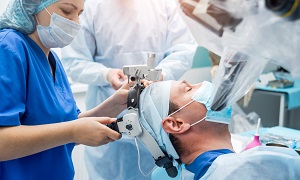
Surgery involves surgeons removing cancer cells surgically, with the help of scalpels and other tools. In children with low-risk neuroblastoma, surgery to remove the tumor is usually the only treatment needed.
Whether your doctor can remove the tumor completely, depends on the location and size of the tumor. Tumors that are attached to nearby vital organs, like the lungs or the spinal cord, might be too risky to remove.
If the neuroblastoma is intermediate or severe, surgeons generally try to remove as much of the tumor surgically, after which other treatments such as chemotherapy and radiation might be used to kill the other remaining cancer cells.
Chemotherapy

This treatment involves using chemicals to destroy cancer cells. Unfortunately, this treatment also damages healthy cells, which can include the cells in the hair follicles and in the gastrointestinal system, which can cause side effects.
Radiation therapy
Radiation therapy uses high-energy beams, such as X-rays, in order to destroy cancer cells. Children with low-risk or intermediate-risk neuroblastoma might go for this treatment. It is generally considered if surgery and chemotherapy are unsuccessful. Children having severe neuroblastoma might also need radiation therapy after chemotherapy and surgery to prevent the cancer from occurring again.
However, it is important to note that though radiation therapy affects the area where it is aimed, some healthy cells may be damaged by the radiation as well.
Immunotherapy
Immunotherapy is a treatment method that uses drugs that work by signaling your body’s immune system to fight cancer cells.
Bone marrow transplant
Children suffering from severe neuroblastoma might need to receive a transplant using stem cells collected from bone marrow
Before the bone marrow transplant, which is also known as stem cell transplant, the child will need to undergo a procedure that filters and collects stem cells from his/her blood. The stem cells are stored for later use. Then high doses of chemotherapy are administered to kill any remaining cancer cells in the body. The child’s stem cells are then injected into your body, where they are now able to form new, healthy blood cells.
Complications
Neuroblastoma can lead to the following complications:
Spread of cancer – Neuroblastoma can spread or metastasize to different parts of the body, such as the lymph nodes, liver, bone marrow, skin, and bones.
Spinal Cord Compression – Tumors can grow and press on the spinal cord, which can cause spinal cord compression, which may further lead to pain or even paralysis.

